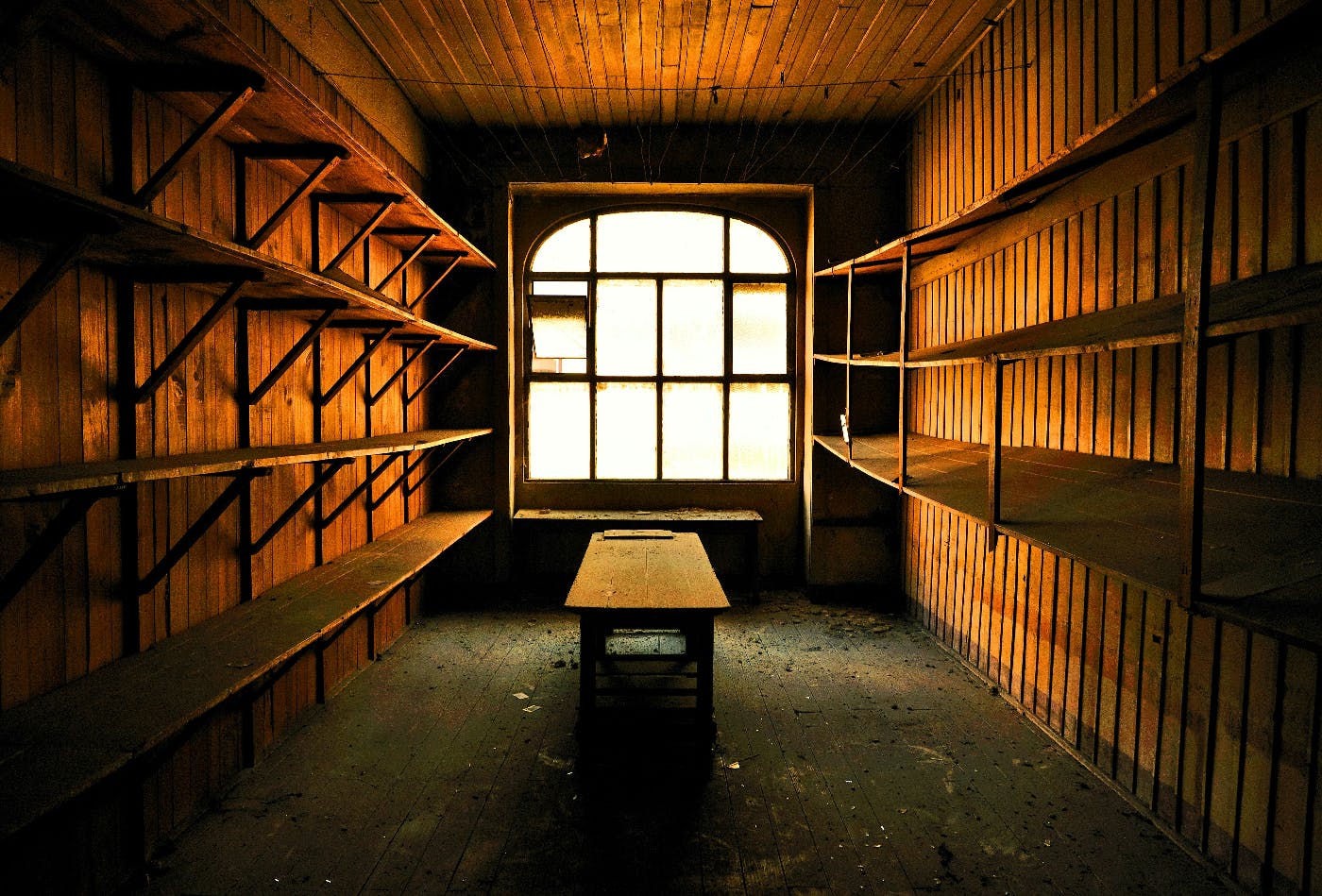
In a world without books, imagination would face its greatest challenge yet.
In 2007, Alan Weisman wrote a book called The World Without Us. In it, Weisman posits what would happen to the earth if humans instantly disappeared. He drew from every field of science to put this stunning vision of the world taking back cities and animals thriving, even without drive-thru fast food.
This isn’t a new idea; films like Omega Man, based on the book I Am Legend, also explore the concept of human beings being wiped away from the earth and what happens after that. Though the movie(s) on the subject are very sci-fi spooky, Weisman looks at it not through science fiction but rather science fact. Our cities sprouting with flora and fauna, buildings collapsing, and herds of deer moving into the upper west side of New York City. He doesn’t say what removed humans from the equation, but there is no nuclear disaster, no radioactive fallout; people are just gone.
In 2023, a jogger in Central Park encountered a coyote. The Central Park Conservancy says that coyotes have been in Central Park since the 1930s. Others say the coyote was checking out the lay of the land and planning where he was going to move his family when all humans disappeared.
The point is that the earth doesn’t need us, never did, and never will. But, we’ve managed some kind of detente with nature, and we go along our merry way, trying as we might to clog the rivers, fill the oceans, and glut the forests with trash and all manner of artificial ickiness. The earth, so far, hasn’t shrugged us off. We keep trying and pushing the boundaries, but so far, we’ve been lucky enough to keep being.
Recently, some people have made a move that could be just as disastrous as the entire human race being removed. Okay, I exaggerate, but it would be pretty terrible. There are groups of people who want to remove our imaginations and our ability to think and understand the world around us. I am talking about the people who are banning and calling for banning books.
Because I’m a reader and lover of words, I wondered what this world would be like if books were just gone. If one day, we woke to find that there were no libraries, bookshops, or airport book kiosks. Much like nature reclaiming the cities and tree roots climbing walls and bringing down high rises, the banning of books would topple one of our greatest resources … our imaginations.
What follows is a thought experiment on what the world would be like without books.

No Books Allowed
In a world without books, imagination would face its greatest challenge yet. Consider the profound impact of literature throughout history; from ancient scrolls to modern paperbacks, books have been the vessels carrying humanity’s stories, knowledge, and imagination. But what if these vessels were suddenly wiped out, leaving behind a void where once there were boundless worlds to explore? Imagining such a world is a daunting task, but it invites us to contemplate the consequences of a literary void.
The Losses
The first casualty of a world without books would be the loss of a cornerstone of human culture. Books have been instrumental in shaping societies, preserving histories, and transmitting values across generations. From religious texts to philosophical treatises, from classic novels to scientific breakthroughs, books have provided the foundation upon which our civilizations have been built. Without them, the fabric of our cultural identity would unravel, leaving us adrift in a sea of amnesia.
Education Suffers
Education would suffer a severe blow in a world devoid of books. Schools and universities would struggle to find alternative teaching methods as textbooks and reference materials vanished from classrooms and libraries. The joy of discovery that comes from exploring the pages of a book would be replaced by dry, uninspiring lectures and rote memorization. Critical thinking skills once honed through the analysis of literature, would wither away, leaving future generations ill-equipped to navigate the complexities of the world.
Literature?
The consequences would extend far beyond the classroom, affecting every aspect of society. Literature has long been a mirror reflecting the human experience, allowing us to empathize with others and understand ourselves better. Empathy would become a rare commodity without books to serve as windows into different perspectives and cultures, and misunderstandings and conflicts would proliferate.
Economic Ramifications
Furthermore, the absence of books would deal a severe blow to the economy. Publishing houses, bookstores, and libraries would shutter their doors, leaving countless people unemployed. The ripple effects would be felt across industries, from printing and distribution to entertainment and tourism. The loss of the literary market would be a blow not just to the economy but to the soul of society, depriving people of one of life's great pleasures: the joy of getting lost in a good book.
Mental Health
The impact on mental health cannot be overstated. Books have long been recognized as a source of solace and inspiration for people facing hardships. Whether escaping into a fantasy world or finding comfort in the words of a self-help book, readers have relied on literature to provide refuge from the storms of life. Without books to turn to in times of need, people would be left feeling isolated and alone, their mental well-being suffering as a result.
Nothing to Imagine
But the most devastating consequence of a world without books would be the loss of imagination itself. Books are the fuel that feeds our creativity, sparking ideas and igniting passions. From the wildest fantasies to the most groundbreaking innovations, literature has been the catalyst for some of humanity's most outstanding achievements. Without books to inspire us, our imaginations would wither and die, and the world would become a duller, more monotonous place.
The Power of the Human Spirit
Yet, even in the face of such bleak prospects, it's important to remember that the human spirit is resilient. Just as literature has evolved over the centuries, so would our means of storytelling and sharing knowledge adapt to fill the void left by books. Digital technology has already revolutionized how we consume literature, with e-books and audiobooks providing new avenues for storytelling. Virtual reality and augmented reality offer even more immersive experiences, allowing readers to step directly into the worlds they once only imagined.

Storytelling
Moreover, the oral tradition predating written language could experience a resurgence in a world without books. Storytelling has always been a fundamental part of human culture, and without books to rely on, oral storytelling could once again take center stage. Communities could come together to share their stories, passing down traditions and wisdom from generation to generation.
In the absence of books, other forms of media would also rise to prominence. Film, television, and video games would become the primary means of storytelling, offering visual and interactive experiences that engage the senses in ways that books cannot. While these mediums may lack the depth and nuance of literature, they connect people and foster empathy in a world that sorely needs it.
Summing Up
Ultimately, the world without books that we have imagined is a world diminished—a world where culture, education, and imagination are impoverished. But it is also a world filled with possibility, where new forms of storytelling and knowledge-sharing have the potential to emerge. As long as stories are told and ideas are shared, the human spirit will continue to find ways to overcome adversity and thrive, even without the beloved books that have been our companions for millennia.
Tell Your Story
There are brands that work hard to preserve the environment and ensure clean water for the world, and who knows, maybe brands that will work hard to avoid books being banned. One can hope.
Does your brand have a story to tell? Is it being told well? Is it reaching the audience who will most benefit from hearing your brand’s story? Storytelling is vital now and may become more so in the future, so now is the time to think about telling your brand’s story and telling it right. Talk to ThoughtLab today, and tell your story.
Work with us.
Tell us where you want to be. We'll help you get there.

